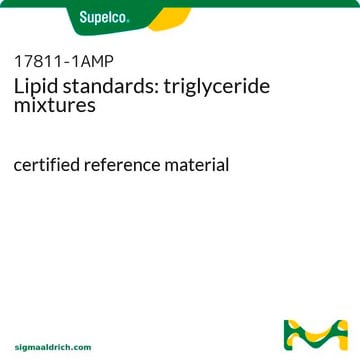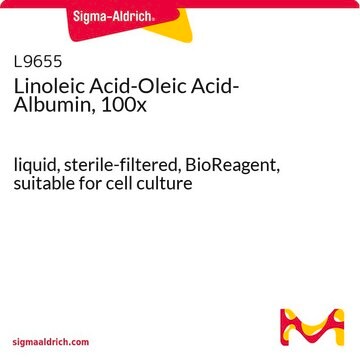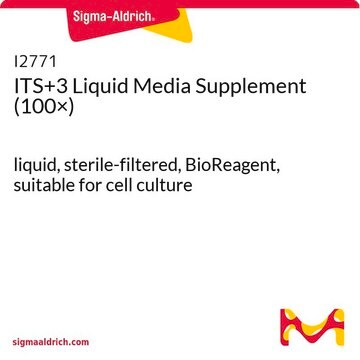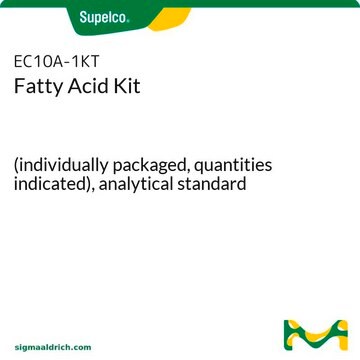L5146
Lipid Mixture (1000×)
liquid, sterile-filtered, BioReagent, suitable for insect cell culture
Synonym(s):
Lipid Mixture for cell culture
About This Item
Recommended Products
sterility
sterile-filtered
Quality Level
product line
BioReagent
form
liquid
composition
cholesterol, 4.5 g/L
cod liver oil fatty acids (methyl esters), 10 g/L
polyoxyethylenesorbitan monooleate, 25 g/L
D-α-tocopherol acetate, 2.0 g/L
technique(s)
cell culture | insect: suitable
storage temp.
2-8°C
Application
Biochem/physiol Actions
related product
Signal Word
Danger
Hazard Statements
Precautionary Statements
Hazard Classifications
Eye Irrit. 2 - Flam. Liq. 2
Storage Class Code
3 - Flammable liquids
WGK
WGK 2
Flash Point(F)
57.2 °F - closed cup
Flash Point(C)
14.0 °C - closed cup
Certificates of Analysis (COA)
Search for Certificates of Analysis (COA) by entering the products Lot/Batch Number. Lot and Batch Numbers can be found on a product’s label following the words ‘Lot’ or ‘Batch’.
Already Own This Product?
Find documentation for the products that you have recently purchased in the Document Library.
Customers Also Viewed
Our team of scientists has experience in all areas of research including Life Science, Material Science, Chemical Synthesis, Chromatography, Analytical and many others.
Contact Technical Service














